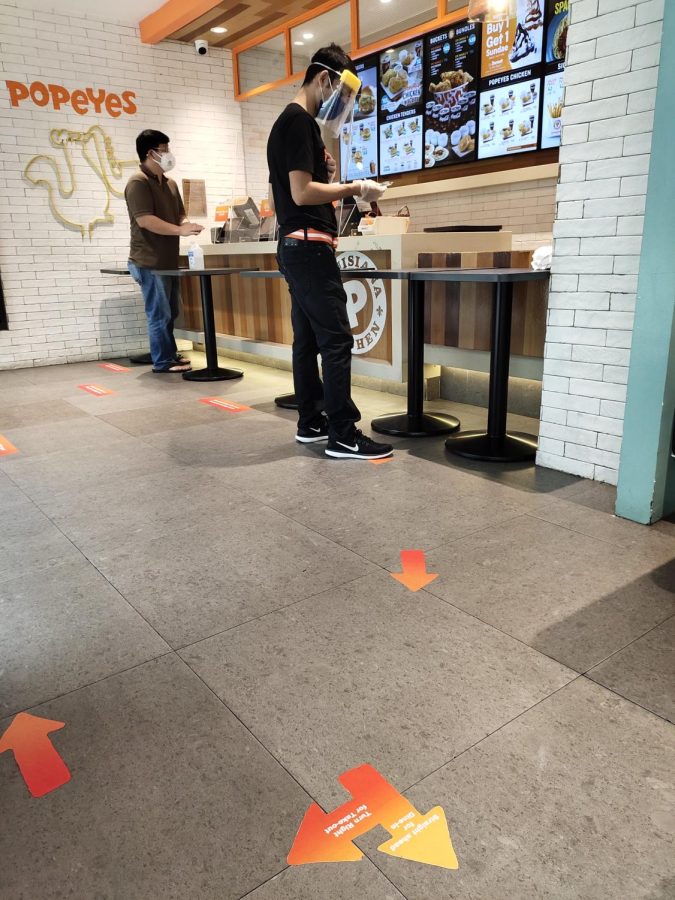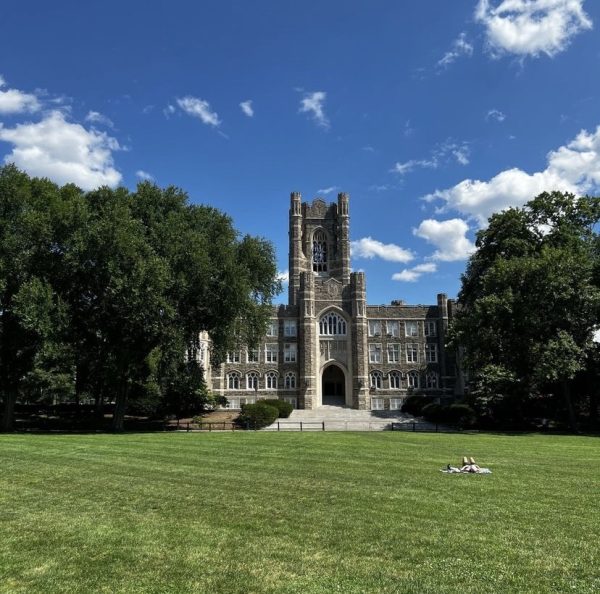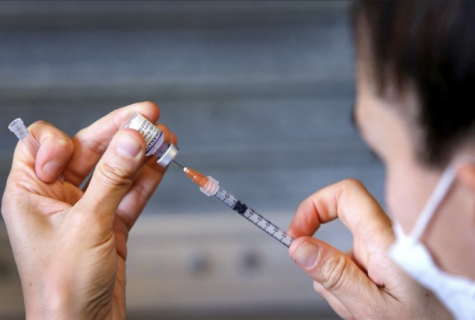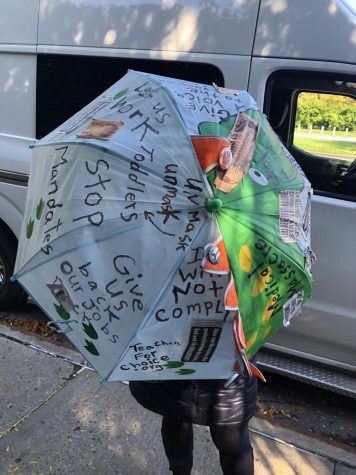Protect the Hands That Feed You
Large electric bikes and insulated cooler bags crowded my view of the window into the Chipotle on Fordham Road. Delivery workers scrutinized the tickets taped on each brown paper bag as though their lives depended on the successful delivery of these carnitas tacos.
Food service workers deliver to doorsteps at all hours under any conditions, but New York City offers them little in return for their service. With the responsibility of feeding five boroughs, these workers deserve more recognition and respect from their employers and customers.
Food delivery became essential during COVID-19, as New Yorkers stayed home and ordered in. Apps like Grubhub, DoorDash and Uber Eats dominated the new market. Food service workers facilitated this domination.
Delivery people populate city streets across the nation, their services replacing traditional restaurant and delivery experiences. Just as Uber replaced the yellow cab, the Uber Eats bike replaced the pizza delivery car.
Communicating through an app, customers are so detached from the delivery process that they feel no remorse when ignoring the humanity of the people behind the screen. Manuel Perez-Saucedo, a Mexican immigrant to New York City, can speak to this plight. After delivering food in Brooklyn on Oct. 13, 2020, two gun-wielding men robbed him of his $1,600 bike. The cost of replacing his bike drained his savings, and the trauma of the robbery reduced his motivation to keep working.
Unfortunately, such attacks are not uncommon, and workers like Perez-Saucedo deserve protection from future attacks as well as overall improved working conditions. On Sept. 16, 2021, New York City passed a package of legislation attempting to address the working conditions of food service workers.
Specifically, this legislation stops food delivery apps from charging their workers unnecessary fees and instructs restaurants to open their bathrooms to delivery workers, among other small condition improvements. While these changes are important, there is still more to do to protect these essential workers.
New York City thrives off of the food service industry. Natives and tourists alike flock to neighborhoods known for food from around the world. When the doors to these restaurants closed and New Yorkers were forced to stay home, food delivery was the only option. Services such as Grubhub, DoorDash and Uber Eats became an essential comfort to socially distant New Yorkers, accustomed to connecting with their city over food.
Considering the sudden necessity of these deliveries, it is disappointing that New York places so little importance on delivery workers’ rights.
The recent legislation marks a move toward proper recognition for food service workers. However, New York City must go further to protect the food delivery workers fueling the five boroughs.
Even so, New York leads the way for the rest of the nation. No other major city has passed such extensive legislation on the issue. It is as though this country’s leaders believe that their food travels unescorted from restaurant to doorstep. Believing anything else would mean acknowledging the underappreciated and underrepresented food delivery worker.
The small steps that New York City has taken hardly warrant praise. After all, not having passed legislation requiring bathroom access for workers until this fall is a gross disregard of human rights. Food service workers are still denied workers’ compensation and unemployment benefits. They are laborers tasked with feeding an entire city, but denied basic rights. Notably, the majority of these unrecognized laborers are new immigrants or members of otherwise disadvantaged groups.
Biking from lower income areas to feed residents in higher income areas, food delivery workers confront their disadvantages daily. Immigrant employees like Perez-Saucedo have little choice in the routes they take. When their bikes are stolen, they are forced to repurchase in order to keep earning and supporting their families. Perez-Saucedo interacts with customers who can afford to purchase and repurchase his $1,600 bike indefinitely.
However, his upward mobility is restricted by inexperience and cultural barriers. He will likely never reach the level of wealth of his “digital” customers. His customers, on the other hand, will likely never have to face the harsh reality that their “digital” food delivery person faces on the way to their door. Ordering from Grubhub, DoorDash, UberEats and the like means a dangerous dissociation with where food comes from and how it makes its way to the dinner plate.
New York City’s new legislation indicates the first branch in breaking this dissociation by acknowledging the struggles food delivery workers face. However, more must be done in this city and nationwide in order to protect this group.
Up until this point, the rights of food service workers have been largely ignored. Whether disregarded by way of their digital employment or because they come from mainly marginalized communities, these workers deserve better.
The Grubhub and UberEats cooler bags that crowd my view of Chipotle may pose an inconvenience, but the men and women who carry these bags have my respect. New York City and the rest of the nation should pass more legislation to protect them.
Megan Benner, FCRH ’24, is undecided from Glastonbury, Conn.















































































































































































































